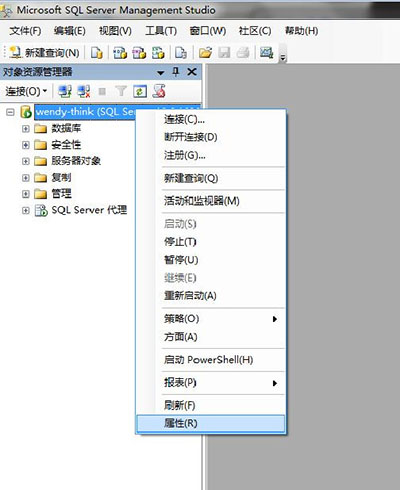sql?server使用nest?typeorm实现索引的方式
针对您提到的索引类型,下面是使用TypeORM库在SQL Server中实现不同类型的索引的代码示例:
普通索引:
import { Entity, Column, Index } from 'typeorm';
@Entity()
@Index('idx_name', ['name'])
export class User {
@Column()
name: string;
@Column()
age: number;
}唯一索引:
import { Entity, Column, Index } from 'typeorm';
@Entity()
@Index('idx_email', ['email'], { unique: true })
export class User {
@Column()
email: string;
@Column()
age: number;
}复合索引:
import { Entity, Column, Index } from 'typeorm';
@Entity()
@Index('idx_name_age', ['name', 'age'])
export class User {
@Column()
name: string;
@Column()
age: number;
}空间索引:
对于空间索引(Spatial Indexes)的实现,TypeORM库并不直接支持在SQL Server中创建空间索引。但是,您可以通过使用原生SQL语句执行此操作。以下是在Nest.js中使用TypeORM和SQL Server的代码示例,演示如何创建空间索引:
import { Injectable } from '@nestjs/common';
import { InjectRepository } from '@nestjs/typeorm';
import { Repository } from 'typeorm';
import { Location } from './location.entity';
@Injectable()
export class LocationService {
constructor(
@InjectRepository(Location)
private readonly locationRepository: Repository<Location>,
) {}
async createSpatialIndex(): Promise<void> {
// 在SQL Server中创建空间索引的原生SQL语句
const query = `
CREATE SPATIAL INDEX IX_Location_Geometry
ON Location(Geometry)
WITH (BOUNDING_BOX = (xmin, ymin, xmax, ymax));
`;
await this.locationRepository.query(query);
}
}在这个示例中,假设有一个名为
Location的实体,代表数据库中的位置表,包含一个名为Geometry的字段,用于存储空间数据。createSpatialIndex方法使用TypeORM的query方法执行原生SQL语句来创建空间索引。请注意,这里的SQL语句中的
xmin、ymin、xmax、ymax应该替换为实际的边界框坐标,以适应您的空间数据范围。** 全文索引**:
针对全文索引的实现,TypeORM库目前并不直接支持在SQL Server中创建全文索引。不过,您可以通过原生SQL语句来执行这样的操作。以下是在Nest.js中使用TypeORM和SQL Server的代码示例,演示如何创建全文索引:
import { Injectable } from '@nestjs/common';
import { InjectRepository } from '@nestjs/typeorm';
import { Repository } from 'typeorm';
import { User } from './user.entity';
@Injectable()
export class UserService {
constructor(
@InjectRepository(User)
private readonly userRepository: Repository<User>,
) {}
async createFullTextIndex(): Promise<void> {
// 在SQL Server中创建全文索引的原生SQL语句
const query = `
CREATE FULLTEXT INDEX ON User(name) KEY INDEX PK_User;
`;
await this.userRepository.query(query);
}
}在这个示例中,假设有一个名为
User的实体,代表数据库中的用户表,包含名为name的字段。createFullTextIndex方法使用TypeORM的query方法执行原生SQL语句来创建全文索引。请注意,这里假设已经在SQL Server中创建了名为
PK_User的主键索引。实际情况可能会因数据库结构和需求而有所不同,您需要根据实际情况调整代码。这些示例演示了如何使用TypeORM库在SQL Server中创建不同类型的索引。在@Entity()装饰器下使用@Index装饰器来定义索引。
到此这篇关于sql server用nest typeorm实现索引的方式的文章就介绍到这了,更多相关sql server nest typeorm 索引内容请搜索电脑手机教程网以前的文章或继续浏览下面的相关文章希望大家以后多多支持电脑手机教程网!


